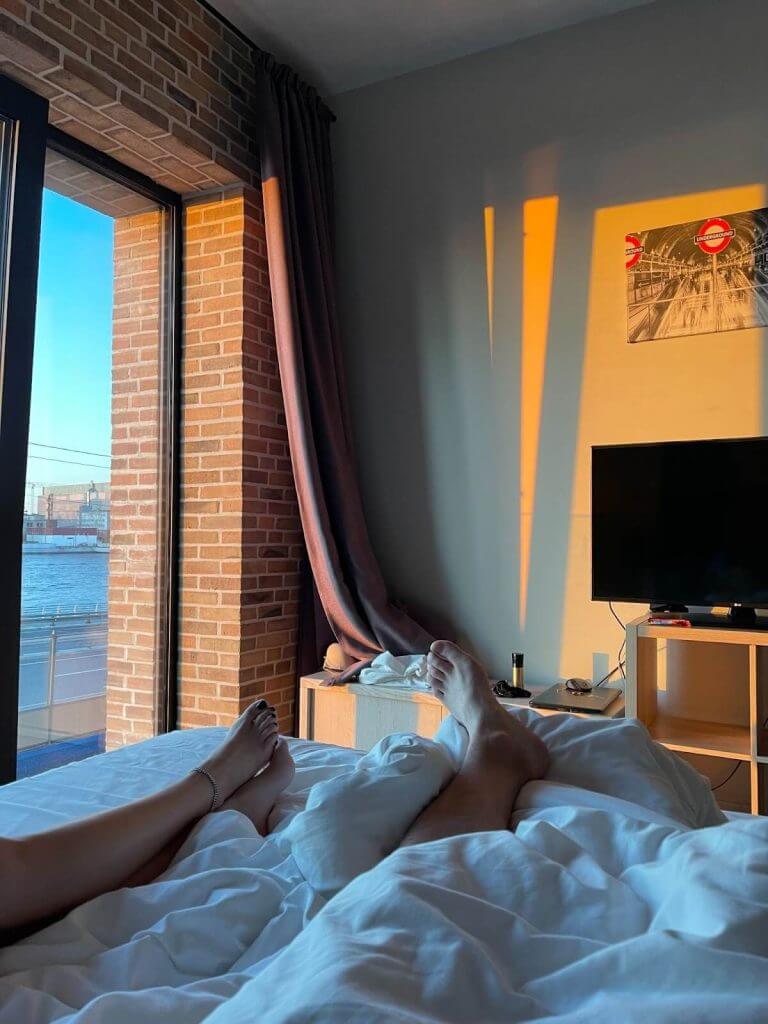Understanding the Impact of Pseudo-Sleep Symptoms on Your Sleep Health
Getting a good night’s sleep is essential for our overall well-being. However, sometimes, we may experience disturbances, such as heavy snoring, sleep apnea, or other sleep disorders that prevent us from achieving the restful sleep we need.
One such disturbance is known as pseudo-sleep symptoms. This article will delve into the definition of pseudo-sleep symptoms, explore the science behind them, discuss common symptoms, and examine their connection to sleep health.
Audio Version Available
Defining Pseudo-sleep Symptoms
Pseudo-sleep symptoms refer to the various sensations or behaviors that mimic sleep while not providing the same restorative benefits.
Unlike genuine sleep, pseudo-sleep is not characterized by the same brain activity patterns that are necessary for true rejuvenation. This phenomenon can lead to feelings of exhaustion and impact overall sleep quality.
The Science Behind Pseudo-sleep
To understand pseudo-sleep symptoms, it is crucial to comprehend the science behind them. Research suggests that our brain interprets certain activities or behaviors as sleep-related due to habitual associations.
These associations can be triggered by external stimuli or internal cues, leading to pseudo-sleep experiences that do not provide the necessary restorative benefits associated with genuine sleep.
One example of a habitual association that can lead to pseudo-sleeping is the use of electronic devices before bedtime. The blue light emitted by screens can suppress the production of melatonin, a hormone that regulates sleep-wake cycles.
When individuals engage in activities such as scrolling through social media or watching videos on their phones or tablets, their brains may interpret this behavior as sleep-related, even though it does not promote restful sleep.
Another factor that can contribute to pseudo-sleeping is the environment in which an individual sleeps. For example, if someone consistently falls asleep while watching television, their brain may associate the act of watching TV with sleep.
As a result, even if they are not truly asleep while watching TV, they may experience pseudo-sleep symptoms such as feeling drowsy or fatigued.
Common Pseudo-sleep Symptoms
Individuals may experience several common pseudo-sleep symptoms. One such symptom is daytime drowsiness, despite spending an appropriate amount of time in bed.
This can be frustrating and can significantly impact daily functioning. Individuals may find themselves struggling to stay awake during work or school hours, leading to decreased productivity and difficulty concentrating.
Automatic behaviors, such as sleepwalking or sleep talking, can also occur during pseudo-sleep. These behaviors can be perplexing and may cause individuals to feel confused or disoriented upon waking. Sleepwalking, in particular, can be dangerous as individuals may engage in activities that put them at risk, such as leaving the house or attempting to operate machinery while still in a state of pseudo-sleep.
In addition to daytime drowsiness and automatic behaviors, some individuals may experience unrefreshing sleep during pseudo-sleep. Despite having technically slept throughout the night, they wake up feeling tired and lacking energy. This can be frustrating and may lead to a cycle of poor sleep quality, as individuals may struggle to feel fully rested even after a full night’s sleep.
It is important to note that pseudo-sleep symptoms can vary from person to person. While some individuals may experience all of the mentioned symptoms, others may only experience one or two.
The severity of these symptoms can also differ, with some individuals experiencing mild discomfort while others may be significantly impacted by pseudo-sleep.
The Connection Between Pseudo-sleep Symptoms and Sleep Health
The impact of pseudo-sleep symptoms on sleep health should not be underestimated. These symptoms can significantly affect sleep quality and contribute to the development or exacerbation of sleep disorders.
Sleep is a vital aspect of overall well-being, and any disruption to its quality can have far-reaching consequences. pseudo-sleep symptoms, although not indicative of genuine sleep, can mimic the effects of actual sleep disturbances, leading to a host of negative outcomes.
How Pseudo-sleep Symptoms Affect Sleep Quality
Pseudo-sleep symptoms can hurt the overall quality of sleep one experiences. It is not uncommon for individuals with pseudo-sleep symptoms to report feeling unrested and fatigued upon waking up. The lack of genuine sleep can result in daytime drowsiness, reduced cognitive performance, and decreased productivity.
Imagine waking up after a night of tossing and turning, feeling as if you haven’t slept at all. This is the reality for those experiencing pseudo-sleep symptoms.
The body and mind crave restful sleep to rejuvenate and repair, but pseudo-sleep only offers a temporary illusion of rest. The consequences of this can be profound, affecting various aspects of daily life.
Furthermore, the impact of pseudo-sleep symptoms on sleep quality extends beyond the individual. Relationships can suffer as irritability and mood disturbances become more prevalent. The ability to engage in social activities and enjoy hobbies may also be compromised, leading to a diminished quality of life.
The Role of Pseudo-sleep Symptoms in Sleep Disorders
pseudo-sleep symptoms often coexist with various sleep disorders, further highlighting their impact on sleep health. Conditions such as insomnia, restless leg syndrome, and sleep apnea may be exacerbated by the presence of pseudo-sleep symptoms, making effective management of these disorders even more challenging.
For individuals already struggling with sleep disorders, the addition of pseudo-sleep symptoms can create a vicious cycle. Sleep disorders are characterized by disrupted sleep patterns, and the presence of pseudo-sleep symptoms can intensify these disruptions. This can lead to heightened anxiety and frustration as individuals struggle to find relief from their sleep-related challenges.
Moreover, the relationship between pseudo-sleep symptoms and sleep disorders is complex. While pseudo-sleep symptoms can exacerbate existing sleep disorders, they can also act as a precursor to the development of more severe sleep disturbances. Recognizing and addressing pseudo-sleep symptoms early on is crucial in preventing the progression of sleep disorders and their associated complications.
The impact of pseudo-sleep symptoms on sleep health is significant. These symptoms not only affect sleep quality but also contribute to the development or worsening of sleep disorders. Understanding the relationship between pseudo-sleep symptoms and sleep health is essential in promoting better sleep and overall well-being.
Evaluating Your Sleep Health
If you suspect that you may be experiencing pseudo-sleep symptoms, it is essential to assess their impact on your overall sleep health.
Sleep is a vital aspect of our well-being, and any disruptions or abnormalities can have significant consequences on our physical and mental health. pseudo-sleep symptoms, which mimic sleep but do not provide the expected benefits, can be particularly concerning. To determine if you are experiencing these symptoms, it is important to engage in self-reflection and evaluation.
Recognizing Pseudo-sleep Symptoms in Yourself
Start by identifying the common pseudo-sleep symptoms mentioned earlier. These symptoms may include feeling like you are asleep but still aware of your surroundings, experiencing vivid dreams or nightmares, or feeling exhausted despite spending what should be an adequate amount of time in bed.
Reflect on your own experiences and observe any patterns or recurring behaviors that mimic sleep but do not provide the expected benefits.
For example, you may notice that you often wake up feeling groggy and unrested, even after what should have been a full night’s sleep. Or perhaps you find yourself frequently experiencing vivid dreams that leave you feeling mentally drained rather than refreshed. These are all potential indicators of pseudo-sleep symptoms.
Assessing the Impact on Your Sleep Health
Consider the effects of pseudo-sleep symptoms on your daily life. Sleep plays a crucial role in our overall well-being, affecting our mood, cognitive function, and physical performance. If you find yourself consistently tired, lacking energy, or experiencing difficulties with concentration and memory, it may be time to seek professional guidance to further evaluate and address these symptoms.
Furthermore, pseudo-sleep symptoms can have a significant impact on your mental health. Chronic sleep deprivation or poor sleep quality can contribute to increased stress levels, anxiety, and even depression. It is important to recognize the potential consequences of these symptoms and take steps to address them.
By seeking professional guidance, you can undergo a comprehensive evaluation of your sleep health. This may involve a sleep study, where your sleep patterns and brain activity are monitored, or consultations with sleep specialists who can provide personalized recommendations and treatment options.
Remember, taking care of your sleep health is essential for overall well-being. By recognizing and addressing pseudo-sleep symptoms, you can improve your sleep quality, enhance your daily functioning, and ultimately lead a healthier and more fulfilling life.
Strategies for Managing Pseudo-sleep Symptoms
While managing pseudo-sleep symptoms can be challenging, various strategies can help improve sleep health.
Sleep is an essential part of our daily lives, allowing our bodies and minds to rest and rejuvenate. However, for individuals experiencing pseudo-sleep symptoms, getting a good night’s sleep can be elusive. pseudo-sleep symptoms, also known as sleep disturbances or sleep disorders, can manifest in various ways, including difficulty falling asleep, frequent awakenings during the night, or feeling unrested even after a full night’s sleep.
Lifestyle Changes to Improve Sleep Health
Implementing healthy sleep habits can significantly improve sleep quality and minimize pseudo-sleep symptoms. Establishing a regular sleep schedule is crucial in regulating your body’s internal clock.
Going to bed and waking up at the same time every day, even on weekends, can help train your body to recognize when it’s time to sleep.
In addition to a consistent sleep schedule, creating a relaxing bedtime routine can signal to your body that it’s time to wind down. This routine can include activities such as reading a book, taking a warm bath, or practicing relaxation techniques like deep breathing or meditation.
By engaging in these calming activities before bed, you can help quiet your mind and prepare your body for a restful sleep. Optimizing your sleep environment is another important aspect of improving sleep health.
Make sure your bedroom is cool, dark, and quiet, as these conditions are conducive to better sleep. Consider investing in blackout curtains, earplugs, or a white noise machine to create an environment that promotes deep and uninterrupted sleep.
Medical Interventions for Pseudo-sleep Symptoms
If lifestyle changes do not alleviate pseudo-sleep symptoms, it is essential to consult with a healthcare professional. They can provide expert guidance on available medical interventions that may help manage these symptoms.
Depending on the underlying cause of the pseudo-sleep symptoms, the healthcare professional may recommend specific medications or therapies.
Medications prescribed for pseudo-sleep symptoms can range from over-the-counter sleep aids to prescription medications that target the root cause of sleep disturbances. It is important to work closely with your healthcare provider to determine the most appropriate medication and dosage for your specific needs.
In addition to medications, various therapies can be beneficial in managing pseudo-sleep symptoms. Cognitive-behavioral therapy for insomnia (CBT-I) is a commonly recommended therapy that helps individuals identify and change negative thoughts and behaviors that may be contributing to sleep difficulties. This therapy focuses on improving sleep hygiene, relaxation techniques, and developing healthy sleep habits.
Another therapy option is light therapy, which involves exposure to specific wavelengths of light to regulate sleep-wake cycles. This therapy is particularly effective for individuals with circadian rhythm sleep disorders, which can contribute to pseudo-sleep symptoms.
Overall, managing pseudo-sleep symptoms requires a comprehensive approach that combines lifestyle changes, medical interventions, and professional guidance. By implementing healthy sleep habits and seeking appropriate medical care, individuals can improve their sleep health and consistently experience restful nights and the benefits thereof.

The Long-Term Effects of Pseudo-sleep Symptoms
It is important to recognize that pseudo-sleep symptoms can have long-term physical and mental health consequences.
Pseudo-sleep symptoms and Chronic Health Conditions
Research suggests that the presence of pseudo-sleep symptoms may contribute to the development or worsening of chronic health conditions. Conditions such as cardiovascular diseases, obesity, and diabetes have been linked to poor sleep quality, emphasizing the need to address pseudo-sleep symptoms to mitigate these risks.
The Impact on Mental Health and Well-being
Pseudo-sleep symptoms can also profoundly impact mental health and overall well-being. Chronic sleep disturbances can lead to increased irritability, mood swings, and difficulties with emotional regulation. Moreover, they have been associated with an increased risk of developing mental health disorders such as anxiety and depression.
Some Final Thoughts
Understanding the impact of pseudo-sleep symptoms on our sleep health is vital for maintaining overall well-being. By recognizing these symptoms or identifying patterns of sleeplessness, evaluating their effects, and implementing appropriate strategies, we can improve our sleep quality and mitigate the long-term consequences.
Prioritizing sleep health, whether you struggle with parasomnias or snoring, should always be a priority, as the benefits extend far beyond rest alone.




